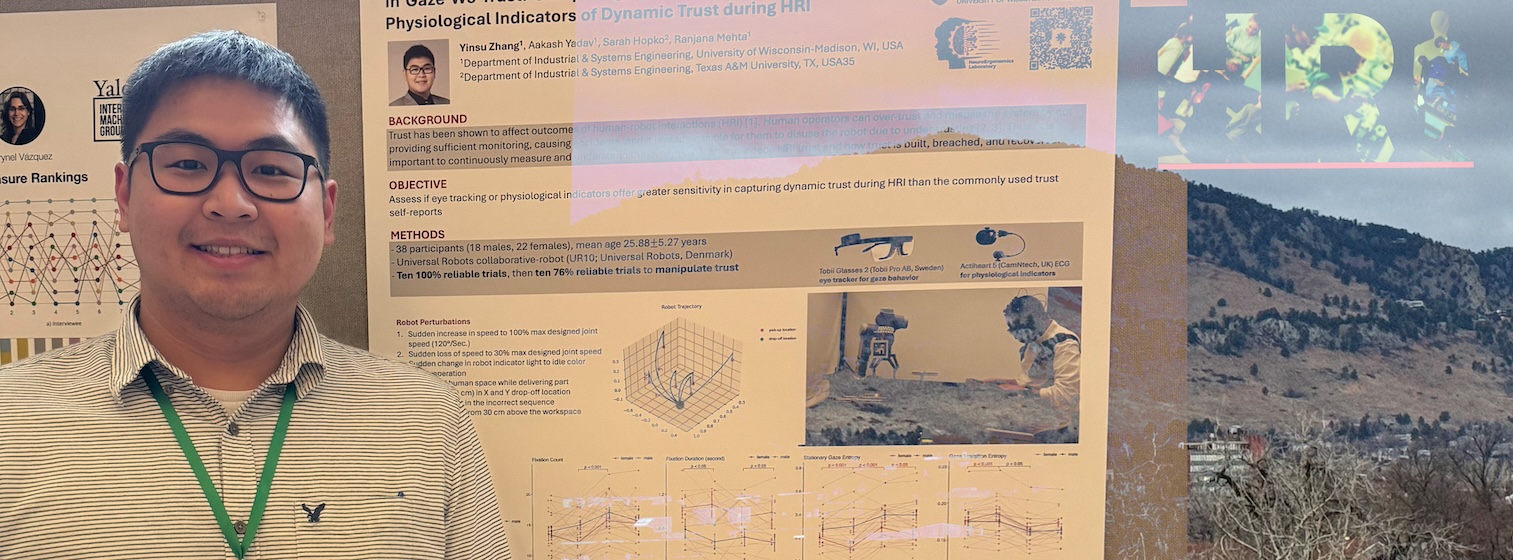HRI 2024: In Gaze We Trust: Comparing Eye Tracking, Self-report, and Physiological Indicators of Dynamic Trust during HRI

Yinsu Zhang from the Neuroergonomics Lab at the Univeristy of Wisconsin-Madison presented their work titled “In Gaze We Trust: Comparing Eye Tracking, Self-report, and Physiological Indicators of Dynamic Trust during HRI” at the 2024 ACM/IEEE International Conference on Human-Robot Interaction (HRI). The conference was held in the city of Boulder, Colorado from March 11-15, 2024. The work was co-authored by Aakash Yadav, Sarah Hopko, and Ranjana Mehta
Zhang, Y., Yadav, A., Hopko, S., & Mehta, R. (2024). In Gaze We Trust: Comparing Eye Tracking, Self-report, and Physiological Indicators of Dynamic Trust during HRI. In Companion of the 2024 ACM/IEEE International Conference on Human-Robot Interaction (pp. 1188–1193). Association for Computing Machinery. https://doi.org/10.1145/3610978.3640649.
The publication (open-access) can be accessed at https://doi.org/10.1145/3610978.3640649.
Abstract
Technical advances in shared-space collaborative robotics have placed recent attention on trust in robots to ensure operator safety as well as to optimize human-robot interactions (HRI). Commonly measured using self-reports, our study explores if eye tracking or physiological indicators ofer greater sensitivity in capturing dynamic trust during HRI. We investigated operators’ trust dynamics (i.e., early and late trust build, breach, repair) across 2 diferent robot reliability levels (100% and 76% reliability). Trust ratings, fxation counts, and gaze transition entropy changed signifcantly between the late trust build and trust breach phases, while heart rate features did not change between any dynamic trust phases. Subjective trust ratings did not change between early and late trust build or between breach and repair phases, however, changes in stationary gaze entropy and gaze transition entropy across these phases were found to be sex-specifc. Eye-tracking measures have the potential to complement, and in some cases replace, subjective trust ratings to uncover dynamic trust across diverse demographics during HRIs.